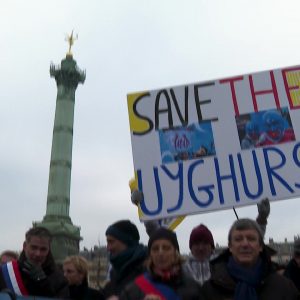Human Rights Watch accuses Greece of double standards towards irregular migrants
ATHENS – The Human Rights Watch has accused Greek authorities of double standards in accepting Ukrainian refugees but rejecting irregular Afghan and other migrants at the border with Turkiye.
A 29-page report said that Greek forces detained, stripped and stole the belongings of irregular migrants from Afghanistan and the Middle East before sending them back towards the Turkish side.
It added that none of these were legally registered and hence had no right to seek refuge.
“There can be no denying that the Greek government is responsible for the illegal pushbacks at its borders, and using proxies to carry out these illegal acts does not relieve it of any liability,” said Bill Frelick, the Human Rights Watch’s refugee and migrant rights director.
Human Rights Watch also criticized Migration Minister Notis Mitarachi after he declared Ukrainian refugees to be “real refugees.”
“At a time when Greece welcomes Ukrainians as ‘real refugees,’ it conducts cruel pushbacks on Afghans and others fleeing similar war and violence,” Frelick said.
“The double standard makes a mockery of the purported shared European values of equality, the rule of law, and human dignity,” he added.
According to the group’s interviews with 26 Afghans, 23 of them were pushed back at Greece’s borders between September 2021 and February 2022.
The 23 men, two women, and one boy confirmed that after their detention, they were kept with little or no food or drink before being pushed back to Turkiye.
Sixteen migrants interviewed confirmed that the men who returned them to the Turkish border spoke Arabic and wore black or commando-style uniforms with balaclava helmets to cover their faces.
The group urged Greece to immediately halt all illegal pushbacks from Greek territory.
It added that the European Commission, Greece’s primary source of financial assistance for migration control, should require Athens to end all “summary returns and collective expulsions” of asylum seekers to Turkiye, and “press authorities to establish an independent and effective border monitoring mechanism that would investigate allegations of violence at borders, and ensure that none of its funding contributes to violations of fundamental rights and EU laws.”









